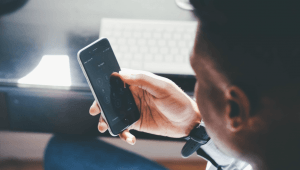This article was first published by Apolitical. Click here to read the original article.
It seems odd to promote citizen participation at a time of lockdown. By early April 2020, “more than 3.9 billion people, or half of the world’s population, [had] been asked or ordered to stay at home by their governments to prevent the spread of the deadly Covid-19 virus.”
How can citizens be actively involved in the work of their government when they are confined to their homes?
While the coercive power of government clearly has an important role to play in solving the Covid-19 crisis, this power has limits. Indeed, it weakens over time. People become impatient, desperate to earn income, anxious to see friends. They start to question whether the cure is worse than the disease itself.
Which is why trust also has a vital part to play here. Citizens will have more patience when they trust that their government has their best interests at heart, and that it is doing everything it can to support health services and to limit the economic damage on citizens. Citizens will be more likely to support government efforts when they have faith that leaders are being truthful about the state of the pandemic. In fact, citizen trust — underpinned by openness — may prove to be a most powerful antidote to Covid-19.
“Excellency, I have citizens on the line for you”
Though every epidemic is different, the experience of Sierra Leone during the 2014-16 Ebola outbreak is instructive. One year into the epidemic, in January 2015, the World Health Organization (WHO) concluded that one of the most important things a government can do when facing such a crisis is to listen to the community.
It was through consultations with village elders that citizens expressed their desire for “a place where uninfected members of a household could go to “self-isolate”…They had observed the high risk of being infected when people were trapped in a quarantined and crowded household with at least one confirmed Ebola case. The idea of providing a tent, offering sufficient space to keep a safe distance from others, was born.”
When they are heard, citizens became part of the solution rather than being passive recipients of an externally imposed response.
A survey of over 1,000 adults in Senegal found that almost three-quarters of citizens would support a two-week lockdown to help contain the spread of Covid-19. What other ideas would citizens suggest?
In the current pandemic, citizen voices are equally vital both for building public trust and helping governments to respond in more effective ways. And just as teleconferencing has enabled millions around the world to continue working during the current pandemic, so technological solutions can help us find safe ways for citizens to make their voices heard.
Twaweza works on enabling citizens to exercise agency and governments to be more open and responsive in Tanzania, Kenya and Uganda. We are using our mobile phone panel survey platform — Sauti za Wananchi, or Voices of the People — to do this in East Africa. We create a nationally representative panel of 2,000 ordinary citizens in each country. Through frequent surveys, they tell us how they are experiencing and assessing the quality of public services and we amplify their voices to decision-makers. And where we don’t have an active panel, we are working with other research institutions to create one at speed. In either case, we have nationally representative survey panels ready to go, without any need to travel across the country visiting people in their homes.
Amongst the information we are collecting: What do citizens know about the virus? Do they know how to prevent its spread? How well are they able to follow official advice in contexts that were already difficult, such as where they lack access to water, or depend on earning sufficient income each day to buy food for that evening?
Know your citizens
We will share our findings with government officials, enabling them to tailor the government’s response to local realities — shaping communications messages, or working out where direct financial assistance is needed most.
We cannot predict what new policy ideas may emerge from citizens, but we are confident that there will be some gems
We will also ask citizens to share their views on what should be done in response to the crisis. What policy proposals have greater public support? What might citizens find unacceptable? An April 7-13, 2020 mobile phone survey of over 1,000 adults in Senegal found that almost three-quarters of citizens would support a two-week lockdown to help contain the spread of Covid-19. What other ideas would citizens suggest? We cannot predict what new policy ideas may emerge from citizens, but we are confident that there will be some gems.
At the time of writing, Covid-19 has taken hold in East Africa. As the number of cases continue to rise, we will adapt our surveys to track the changing reality. How are health services coping? How are the economic impacts affecting different sections of society? By doing so, we expect to deepen the understanding among policymakers of how the pandemic is affecting citizens. We also hope to build trust among citizens that the government is being truthful and it is listening to their needs, understanding their realities and responding with care and compassion.
Now, more than ever, this kind of open government may actually save lives.
This article is part of the Open Response + Open Recovery article series in partnership with the Open Government Partnership. Explore how open government can tackle the challenges posed by COVID-19 and ensure an open response and open recovery here.
Featured Image Credit: Death to the stock photo


Leave a Reply